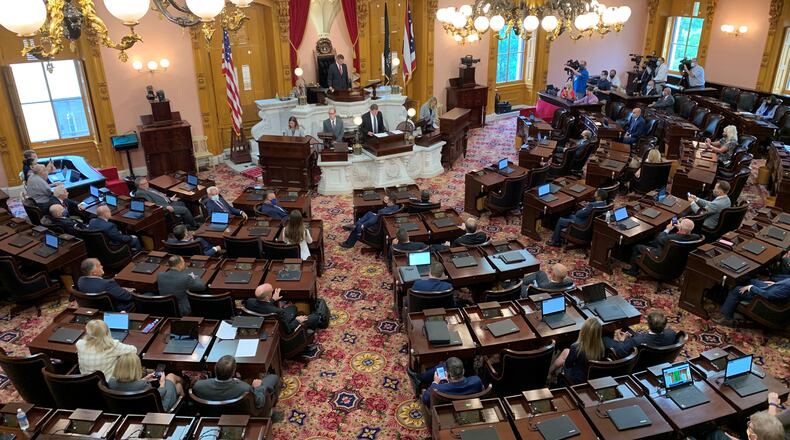The bill also would ban shackling pregnant women before, during or immediately after delivering their babies.
House Bill 264 would change occupational licensing rules to remove barriers for people with criminal records.
“An individual should not be denied an occupational license and subsequent employment due to an offense that is not related to their licensed occupation. In the face of job losses due to COVID-19, Ohio policy should not be making it harder to find a family-sustaining job for anyone,” said Susan Jagers, of Ohio Poverty Law Center, in a written statement.
Legislators gave final approval to several other bills, including:
HB308: The state would create a fund to pay lost wages and mental health benefits for first responders suffering from post traumatic stress disorder. The Ohio Police & Fire Pension Fund would be in charge of conducting an actuarial study on how much would be needed in the fund.
HB674: The state Division of Liquor Control would adopt rules to allow for home delivery of spiritous liquor and mixed beverage pods. It also would allow certain brewpubs to have the flexibility of either selling pre-packaged food or arranging for a food truck to be on premises. More controversial elements of the bill, such as allowing alcohol sales until 4 a.m. and on Sundays, were removed from the legislation.
SB68: Ohioans age 21 to 65 would be allowed to renew their driver’s licenses, motorcycle licenses and other licenses for up to eight years, instead of the usual four-year cycle. The bill also would create a program for people who can’t afford to pay license reinstatement fees to do community services hours instead.
The bills now head to Ohio Gov. Mike DeWine, who has 10 days from when the legislation is delivered to him to sign, veto or let them go into law without his signature.
As of deadline, the House and Senate had yet to agree on how to address the controversial energy law known as House Bill 6.
“I think we should have done a repeal (of HB6) and we should’ve done it a long time ago. I’m disappointed that that didn’t happen,” said Senate President Larry Obhof, R-Medina, who noted that he doesn’t believe there are 50 votes in the House for any fix proposal.
About the Author

